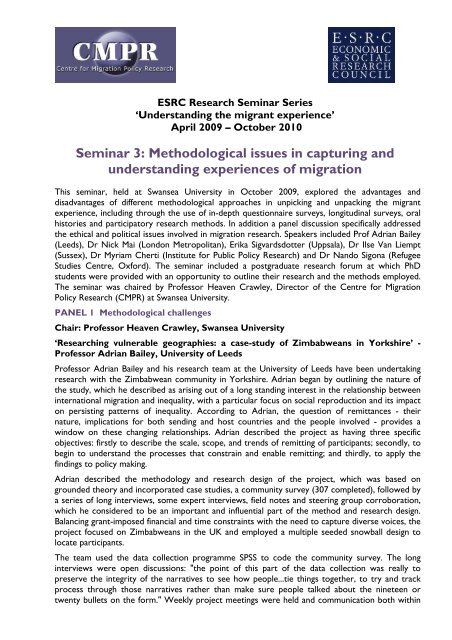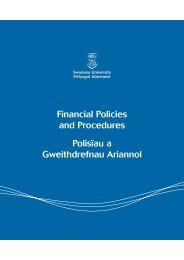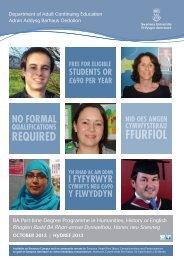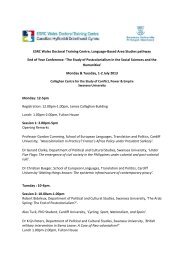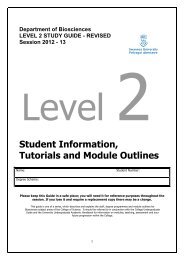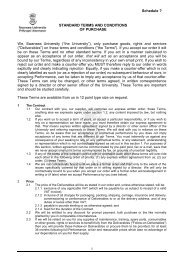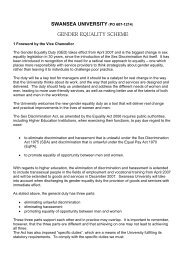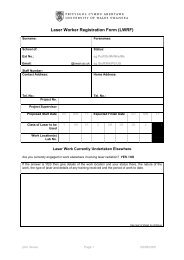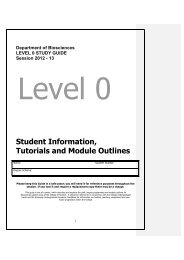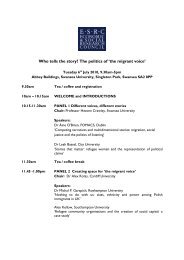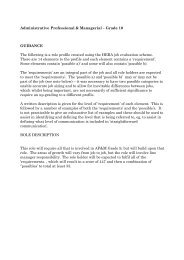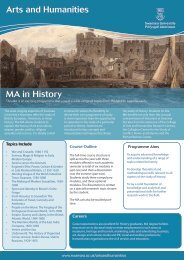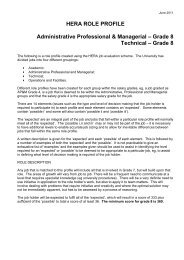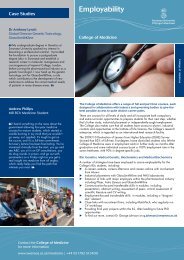ESRC Seminar Series - Briefing Paper 3 - Swansea University
ESRC Seminar Series - Briefing Paper 3 - Swansea University
ESRC Seminar Series - Briefing Paper 3 - Swansea University
You also want an ePaper? Increase the reach of your titles
YUMPU automatically turns print PDFs into web optimized ePapers that Google loves.
<strong>ESRC</strong> Research <strong>Seminar</strong> <strong>Series</strong><br />
‘Understanding the migrant experience’<br />
April 2009 – October 2010<br />
<strong>Seminar</strong> 3: Methodological issues in capturing and<br />
understanding experiences of migration<br />
This seminar, held at <strong>Swansea</strong> <strong>University</strong> in October 2009, explored the advantages and<br />
disadvantages of different methodological approaches in unpicking and unpacking the migrant<br />
experience, including through the use of in-depth questionnaire surveys, longitudinal surveys, oral<br />
histories and participatory research methods. In addition a panel discussion specifically addressed<br />
the ethical and political issues involved in migration research. Speakers included Prof Adrian Bailey<br />
(Leeds), Dr Nick Mai (London Metropolitan), Erika Sigvardsdotter (Uppsala), Dr Ilse Van Liempt<br />
(Sussex), Dr Myriam Cherti (Institute for Public Policy Research) and Dr Nando Sigona (Refugee<br />
Studies Centre, Oxford). The seminar included a postgraduate research forum at which PhD<br />
students were provided with an opportunity to outline their research and the methods employed.<br />
The seminar was chaired by Professor Heaven Crawley, Director of the Centre for Migration<br />
Policy Research (CMPR) at <strong>Swansea</strong> <strong>University</strong>.<br />
PANEL 1 Methodological challenges<br />
Chair: Professor Heaven Crawley, <strong>Swansea</strong> <strong>University</strong><br />
‘Researching vulnerable geographies: a case-study of Zimbabweans in Yorkshire’ -<br />
Professor Adrian Bailey, <strong>University</strong> of Leeds<br />
Professor Adrian Bailey and his research team at the <strong>University</strong> of Leeds have been undertaking<br />
research with the Zimbabwean community in Yorkshire. Adrian began by outlining the nature of<br />
the study, which he described as arising out of a long standing interest in the relationship between<br />
international migration and inequality, with a particular focus on social reproduction and its impact<br />
on persisting patterns of inequality. According to Adrian, the question of remittances - their<br />
nature, implications for both sending and host countries and the people involved - provides a<br />
window on these changing relationships. Adrian described the project as having three specific<br />
objectives: firstly to describe the scale, scope, and trends of remitting of participants; secondly, to<br />
begin to understand the processes that constrain and enable remitting; and thirdly, to apply the<br />
findings to policy making.<br />
Adrian described the methodology and research design of the project, which was based on<br />
grounded theory and incorporated case studies, a community survey (307 completed), followed by<br />
a series of long interviews, some expert interviews, field notes and steering group corroboration,<br />
which he considered to be an important and influential part of the method and research design.<br />
Balancing grant-imposed financial and time constraints with the need to capture diverse voices, the<br />
project focused on Zimbabweans in the UK and employed a multiple seeded snowball design to<br />
locate participants.<br />
The team used the data collection programme SPSS to code the community survey. The long<br />
interviews were open discussions: "the point of this part of the data collection was really to<br />
preserve the integrity of the narratives to see how people...tie things together, to try and track<br />
process through those narratives rather than make sure people talked about the nineteen or<br />
twenty bullets on the form." Weekly project meetings were held and communication both within
the team and the community was considered to be a priority. Electronic newsletters were used to<br />
inform people of the project’s progress.<br />
Reflecting on the project, Adrian considered that the clear and consistent communication<br />
maintained by the team was essential to developing and maintaining a relationship of trust with the<br />
research population, many of whom were undocumented. In addition to this Adrian acknowledged<br />
the importance of the support of key members of the community and the role of Dr Farai<br />
Magunha (Post-Doctoral Research Assistant), himself a community-based scholar.<br />
In retrospect Adrian considers that the decision not to remunerate the community survey<br />
participants reduced the response rate. He is also aware, due to the transitory nature of the<br />
population, that some groups - particularly those who had arrived in the UK as the research was<br />
underway - were not represented in the survey. In addition to this Adrian feels that some of the<br />
issues that arose could have been anticipated, such as the steering groups enthusiasm for<br />
quantitative benchmark data and the time needed to analyse the data.<br />
Issues regarding insider/outsider status were also raised: "The rapport that Farai had in interviews<br />
was very different than the rapport that I had in long interviews". Despite using a similar script and<br />
approach and discussing items as a team during regular briefings, insider/outsider status still affects<br />
the type of connections with those researched. Adrian concluded by reiterating the importance of<br />
clear and consistent communication and a word of caution: "Never forget the ethics of collecting<br />
data and not being able to use it."<br />
‘Researching/understanding undocumentedness through the narratives of young<br />
undocumented migrants in England’ - Dr Nando Sigona, Refugee Studies Centre and<br />
Centre on Migration, Policy and Society (COMPAS), <strong>University</strong> of Oxford<br />
Dr Nando Sigona teaches refugee studies at Oxford Brookes <strong>University</strong> and is a research officer at<br />
the Refugee Studies Centre (<strong>University</strong> of Oxford). Nando’s presentation was based upon<br />
research which was funded by the Paul Hamlyn Foundation as part of their Social Justice<br />
Programme and subsequently published as ‘No right to dream’ The social and economic lives of young<br />
undocumented migrants in Britain (Bloch, Sigona and Zetter 2009).<br />
In keeping with the theme of the day, Nando focussed upon the methodological strategies and<br />
challenges involved in undertaking the research. The research was based on seventy five in-depth<br />
interviews and testimonies of undocumented migrants, from five different nationalities or ethnic<br />
groups, and sought to answer the following questions:<br />
• ‘What does it mean to be young and undocumented in contemporary Britain?<br />
• How do young migrants cope with life in Britain at a time of economic downturn and the<br />
introduction of the government ‘tough touch’ on undocumented migrants?<br />
Nando explained that the main aim of the research was to attempt to “...combine the uniqueness<br />
and the richness of the individual experience of the young undocumented migrant with the search<br />
for patterns and commonalities across their accounts of their everyday life experiences...[without<br />
assuming]... that the undocumentedness was something that was basically embedded in every<br />
aspect of their life”. Nando pointed out that having successfully captured the heterogeneity of<br />
experience that they sought, the team were then faced with the problem of how to present this in<br />
the report and how to draw meaningful conclusions from the material.<br />
Nando outlined the research design and methodology, making particular reference to the scoping<br />
study that the team undertook at the outset. He considers this first stage to have been essential to<br />
the development of the second stage, as it identified the key issues for investigation, and also gave<br />
the team a strong indication of the type of methodological approaches that would be useful.<br />
Due to the undocumented nature of the research participants, access was a key factor in the<br />
research, largely overcome by laying the foundations for, and establishing, relationships of trust.<br />
Some networks inevitably proved more productive than others which led to the potential for over<br />
representation of a particular group, and the sample had to be rebalanced to accommodate this<br />
reality. Practical issues also arose regarding the location of interviews which often took place in
very public spaces. However Nando stated that a key problem the project encountered in the field<br />
was “...people not turning… or just disappearing at the last minute because of anxiety or getting a<br />
job for the day.”<br />
The field research was conducted in the participants’ first language and field researchers were<br />
selected from the ‘community’ for both their language skills and their social network. This strategy<br />
was a significant factor in the research design and one that Nando identified as having both positive<br />
and negative aspects, and some important ethical considerations. Community researchers’ brought<br />
a cultural sensitivity to the interview process but also some blind spots, having a shared language<br />
and community meant that some issues were considered ‘obvious’ and not worthy of discussion.<br />
In addition, nando pointed out that “… more direct communication in the [participants first]<br />
language really helped to go much more in-depth into the life of the individuals and this from my<br />
point of view also raised some ethical questions about to what extent as researchers we are<br />
allowed to access information that we were not able to collect ourselves".<br />
Nando concluded his remarks with an example of the significance of trust and language in gaining<br />
access to this ‘hidden’ population:<br />
“I got mobile phone number of shop owner from his 10 year old son and called him and explained<br />
the reason of my call. He told me that he does not know me therefore he cannot help me. I<br />
started to talk to him in Kurdish and mentioned that I had worked in the Kurdish community<br />
centre in London. He asked me from which city I am and whether I know ID. [one of our<br />
community organisational partners]. I told him that ID is a friend of mine. Then he asked me if ID.<br />
can call him and confirm that he knows me” (field visit report).<br />
The Young Undocumented Migrants (YUM) website can be found at<br />
http://www.staff.city.ac.uk/yum/<br />
A copy of the report can be found at<br />
http://www.staff.city.ac.uk/yum/documents/Young%20Undocumented%20Migrants%20report.pdf<br />
PANEL 2 Research methods and approaches<br />
Chair: Dr Nicola Piper<br />
‘Migration trajectories, life histories and the challenges of creating a collective<br />
memory: the case of Moroccan migrants in Britain’ – Dr Myriam Cherti, Institute for<br />
Public Policy Research (IPPR)<br />
Myriam Cherti is a Senior Research Fellow at the Institute for Public Policy Research (IPPR).<br />
Myriam gave a brief introduction to the Moroccan Diaspora in the UK. She then focussed her<br />
presentation on two aspects of research: the oral history project and her initial doctoral research<br />
‘Paradoxes of Social Capital: A Multi-Generational Study of Moroccans in London’ which examined<br />
the role of social capital in influencing patterns of integration amongst the Moroccan community.<br />
In discussing the methodological approach of her doctoral thesis, Myriam informed us that she had<br />
used a snowballing method in order to undertake the 151 interviews. She attributed much of the<br />
success of the project to the fact of her having worked with the Moroccan community for over six<br />
years and having established relationships. Following on from this, Myriam began the oral history<br />
project ‘Moroccan Memories in Britain’ in 2007. The project aimed to interview first, second and<br />
third generation Moroccans in the UK. Myriam considers a unique aspect of the project to be that<br />
it was a ‘community research project’ with fieldworkers recruited from both within and outside of<br />
the community: “In a sense, the project ended up being a key study of engagement with<br />
community research and has challenged in a way some of the boundaries between researchers and<br />
research subjects because some of the field workers were themselves part of the first or second<br />
generation, others were researching, like they were PhD students researching the Moroccan<br />
community as well so the boundaries have been blurred which has led to the creation of a process<br />
of simultaneous primary research archiving and practical dissemination amongst local and wider<br />
communities.”
Myriam then reflected upon oral history as the chosen methodological approach. The value of this<br />
methodology for Myriam is its ability to reveal aspects of participants’ lives that are not captured<br />
by other mediums. She described her motivation for using this approach as “...an attempt to<br />
reconstruct part of this missing history and so personal interviews in this context offer a powerful<br />
and unique insight into the lives of Muslims and would also highlight the complexity of the actual<br />
processes of migration as it tells a story beyond the interview.” In addition Myriam considered<br />
that the methodology increased the sense of self worth amongst a generation of elders “...who<br />
often felt that their lives are of no interest, marginalised, or excluded by both their host society<br />
and their country of origin.”<br />
Myriam countered the common critique of oral history as unreliable and lacking in factual basis,<br />
stating that “the importance of oral history may reside not in its apparent facts, but rather in its<br />
departure from them, as imaginations, symbolism, and desire emerge.” She also challenged the<br />
monopoly of written documents as the only credible sources of ‘facts’, “...very often written<br />
documents are only controlled transmission of an identified oral source.” Myriam concluded her<br />
presentation with a question to the audience: “...to what extent can individual migrants’ memories<br />
be combined to represent a collective memory of a whole community?”<br />
The oral history project ‘Moroccan Memories in Britain’ can be found at<br />
http://www.moroccanmemories.org.uk/<br />
Postgraduate Research Forum<br />
‘Getting to know ‘hidden’ rejected asylum seekers in Sweden: children as<br />
gatekeepers’ - Erika Sigvardsdotter, Uppsala <strong>University</strong>, Sweden<br />
Erika Sigvardsdotter was the first of the postgraduate students to present their work. Her<br />
research covers two related areas. Firstly it is an exploration of how the institutional border of<br />
Swedish health care is formulated, practiced and negotiated, both by health care professionals and<br />
by undocumented migrants themselves. Secondly it aims at exploring different bodily perspectives<br />
of undocumentedness, through the methodological approach of participatory observation.<br />
Erika informed us that in Sweden rejected asylum seekers constitute the majority of<br />
undocumented migrants and that most of their access to support comes via NGOs and the<br />
church. It was in this context that Erika undertook her participatory observation, performing the<br />
role of a child minder, factotum and researcher at a monastery that provides sanctuary for<br />
undocumented migrants. It was through the relationships she established with the children that<br />
she was able to develop relationships with the parents, who would make this connection explicit<br />
with comments such as “well, we see that the children like you very much. We see that they trust<br />
you, then we do too.” This has led Erika to conceptualise this dynamic in terms of a<br />
‘gatekeeperhood’ of children. Realising the primacy of these relationships and the ethical<br />
implications, Erika concluded by posing the following questions to the group:<br />
• What do I do with the things the children tell me about their parents?<br />
• What side am I on in the conflicts between parents and children?<br />
• What is my responsibility for our relationships?<br />
‘Trafficking of women for the purpose of prostitution and sexual exploitation:<br />
Developing a model of service provision using the Republic of Ireland, United<br />
Kingdom and Italy as case studies’ - Delia Rambaldini-Gooding, <strong>University</strong> College<br />
Dublin<br />
Delia Rambaldini-Gooding used the forum to present her ongoing research into how services are<br />
provided to women who have been trafficked for the purposes of prostitution and sexual<br />
exploitation, focussing on the aims of the research and its methodological approach. Delia aims to<br />
develop a model based on the principles of a human rights and gender perspective to address the<br />
needs of trafficked women. Her methodological approach was to use multiple case studies in<br />
order to capture the experiences of non-government service providers working within a similar<br />
legislative and statutory framework, but in different European Union countries. Explaining her
ationale she added “I thought it was not only important to capture how the NGOs provide<br />
services but within what sort of political, economic and cultural contexts and when I say cultural<br />
contexts I also mean the context of the sex industry and prostitution in those countries.” In<br />
conclusion, Delia stated the aim of the research is to be the development of a model of service<br />
provision which could be transferable between different European Union countries.<br />
‘Researching migrant experiences: using auto-photography to explore ideas of home,<br />
identity and belonging for Muslim women in London and Bristol’ - Imogen Wallace,<br />
Queen Mary <strong>University</strong> of London<br />
Through a description of her own research with Muslim women’s ideas of home, identity and<br />
belonging and how these may be affected by the experience of Islamophobia and racism, Imogen<br />
Wallace provided us with an insight into the use of auto-photography as a research methodology.<br />
Imogen argued that the use of auto-photography “seems to challenge unequal power relations<br />
between the researcher and the researched whereby the research participants are able to use<br />
their visual imagination to produce images which are embedded within the culture and<br />
contextualised through their personal lives, so eventually it brings the intentionality of the<br />
research participant as producer to the forefront and it is this centrality of participants’<br />
construction, narration and reflection upon their images which give this method its strength.”<br />
Imogen also suggested that the use of this method enabled her to talk to the women about their<br />
ideas regarding their homes and their identities, something they had been reluctant to do<br />
previously: “...the women seemed to gain confidence as they discussed their images and it really<br />
felt as though they were guiding me through a much more private sense of their identity as<br />
articulated through the narration of their images of their home spaces and their material<br />
possessions.” In addition to this, Imogen commented upon the fact that this allowed her to<br />
explore ‘the home’ without actually entering the home, something that the women were reluctant<br />
to allow to happen and which she feels raised questions in terms of “...looking critically at how we<br />
research the home given that the home is often cited as an empowering research site for<br />
interviews...in this case the home being part of the research focus negated that sense of<br />
empowerment, hence it being rejected.” Imogen concluded by highlighting some of the ethical and<br />
practical implications that are raised by the use of this methodology.<br />
‘Policies of integration and citizenship in Europe’ - Zeynep Yanasmayan, Catholic<br />
<strong>University</strong> of Leuven, Belgium<br />
Zeynep Yanasmayan presented her research as an investigation of the concept of citizenship.<br />
Focusing on the perceptions and experiences of young, highly educated, Turkish immigrants in four<br />
European countries, Zeynep examined the idea of memberships of society, from both a legal and<br />
social perspective. Zeynep discussed the qualitative aspects of her research, its design and<br />
implementation and in conclusion presented the group with some of the dilemmas she had<br />
encountered, not only in conducting the research and but also in the analysis of the data.<br />
‘Visualising migration and mobility though online GIS: a historical analysis of mobility<br />
in Prussia’ - Kevin Daniells, <strong>University</strong> of Portsmouth<br />
Kevin Daniells spoke about the technical and practical aspects of developing a GIS web application<br />
intended to allow migration researchers to test migration theories. He used qualitative data from<br />
18th-20th Century family histories to demonstrate the potential of the software to map social and<br />
geographical movement within the population and to present this information in a visual format.<br />
Kevin argued that the practical applications of the software had potential not only for geographers<br />
and genealogists, but also for local councils, suggesting that councils may “...want to model the<br />
movement of migrations in their council area with a view to plan for public services.”
PANEL 3 Ethical issues in migration research<br />
Chair: Professor Heaven Crawley, <strong>Swansea</strong> <strong>University</strong><br />
‘Researching migrant workers in the UK sex industry: methodological and ethical<br />
implications’ - Dr Nick Mai, London Metropolitan <strong>University</strong><br />
Dr Nick Mai is Senior Research Fellow in Migrations and Immigrations at ISET, the Institute for the<br />
Study of European Transformations of London Metropolitan <strong>University</strong>. In his presentation Nick<br />
gave a systematic account of the ethical implications of his research and how this influenced the<br />
methodological design of the project. He began by describing the aims of the project as “...trying<br />
to improve the understanding of the link between migration and the sex industry as a labour<br />
sector in order to contribute to the elaboration of better and more efficient policies about<br />
migration, prostitution, trafficking and social exclusion, to improve current public and academic<br />
debate about these issues as well as to produce an ethical framework of the research”.<br />
The research was undertaken with women, men and transgender people working in all sectors<br />
across the sex industry in London and resulted in one hundred semi-structured interviews. As the<br />
perspective of the project was to approach the sex industry as a labour market; access to<br />
participants was gained not through the usual routes of social delivery, support and projects, but<br />
rather via commercial contacts. Participants were contacted using information that sex workers<br />
make available to the public for the purposes of conducting their business, as this was considered<br />
to be in keeping with the ethical framework. The project adopted a participatory community<br />
based approach and included sex workers and members of organisations representing the sex<br />
industry, on the advisory board and also as interviewers. Interviewees were paid in cash for their<br />
participation and all possible steps were taken to protect their anonymity, confidentiality and<br />
safety. Interviews were undertaken in places chosen by participants. No Interviews were recorded<br />
and written notes were only made with the participants’ permission. Interviewers were equipped<br />
with a list of useful contacts for participants who felt they needed help.<br />
Nick also drew our attention to the difficulties of working with vulnerable groups and dealing with<br />
sensitive, emotive material, for both the researcher and the researched. The team employed a<br />
number of strategies to deal with this including taking a self-reflexive approach.<br />
In addition to this he spoke of the problem of gaining trust when working with people subject to<br />
multiple dynamics of social exclusion, “...most importantly as migrants, and sometimes as<br />
undocumented migrants, but also as people who were working in a very stigmatised activity of sex<br />
work, and [dealing with issues of] homophobia and trans-phobia.” Nick commented on a ‘crisis’<br />
point whereby, the project was significantly affected by external political events, which caused part<br />
of the community to mobilise, and go into retreat. The team eventually overcame this and gained<br />
the trust of participants by having a constant presence in the field and advocating on their behalf.<br />
For Nick, the ethical and political context of the research are inextricably linked: “I think it is<br />
impossible to talk about ethics without talking about politics...I was asked to intervene. I was<br />
asked to intervene for example by commenting on the findings of the research...and I thought it<br />
was my responsibility being as this project was informed by a sex work friendly perspective, so I<br />
participated in two events promoted by non-abolitionists at the Parliament...so I was seen to be<br />
credible because I was seen constantly there saying the same things to many different people in<br />
different places.”<br />
Nick concluded his presentation by raising the issue of the importance of acknowledging the<br />
difficulties faced by both researchers and the researched when dealing with sensitive and often<br />
traumatic information and the importance of being able to factor in professional support to the<br />
research design. This point was well received and was given broad support by those in the room.<br />
Further information about the project can be found at: http://www.londonmet.ac.uk/researchunits/iset/projects/esrc-migrant-workers.cfm<br />
A copy of the final report ‘Migrant Workers in the UK Sex Industry’ can be found at:<br />
http://www.londonmet.ac.uk/londonmet/fms/MRSite/Research/iset/Migrant%20Workers%20in%20t<br />
he%20UK%20Sex%20Industry%20Policy-Relevant%20Findings2.pdf
‘Ethics in research with undocumented migrants: experiences from research on<br />
human smuggling in the Netherlands’ - Dr Ilse Van Liempt, <strong>University</strong> of Sussex<br />
Dr Ilse Van Liempt is a Marie Curie Research Fellow at Sussex <strong>University</strong>. Her contribution to the<br />
seminar was to discuss the ethical issues involved in researching undocumented migrants. Her<br />
presentation was based on her own research into human smuggling into the Netherlands, primarily<br />
of asylum seekers, from a variety of different regions. Ilse expressed the opinion that there is a<br />
scarcity of frank and honest literature in relation to the ethical difficulties that can be encountered<br />
in the process of undertaking research. She was equally critical of existing research into the area of<br />
human smuggling and the way in which it is framed: “I found that most of the research on human<br />
smuggling was actually looking in to what they called a social organisation, how these smugglers<br />
operate, how was smuggling organised, how do smugglers contact other smugglers...there was<br />
actually very, very little information on what decisions migrants make and whether they have<br />
agency within the decisions or how they relate to their smugglers or what it means for the<br />
migration process”.<br />
Returning to the ethics, Ilse Liempt raised the issues of data protection and anonymity with<br />
particular reference to the effect of this on the process of writing up her research: “...it may be<br />
simple to change names or to change cities but I was actually having a lot of trouble when I was<br />
writing up my oral histories...the stories I had were life stories and very detailed...if I erased<br />
everything that would identify them, the stories were nothing, and they became quite similar to<br />
the stories the immigration officers had, [e.g.] “I crossed the border but I don’t know where” and, “I<br />
travelled lying in a car and I ended up in an unknown place”, and I didn’t want that, so it was quite a<br />
challenge how to deal with it.” Similarly, many of the participants wanted the integrity of their<br />
‘stories’ maintained. Some even requested that their names be published.<br />
Ilse spoke of the difficulties that can arise for researchers when interviewing people who had been<br />
interviewed about their particular experience, by police and immigration, many times before, and<br />
in a sense had constructed a narrative response: “...it was really, really difficult to realise that there<br />
are all sorts of constructions and many, many different types of story and people present<br />
themselves in a certain way...as a researcher obviously you want to go beyond the constructed<br />
stories but that can be... sometimes ethically difficult how to deconstruct these stories because the<br />
story has a meaning.”<br />
In addition, Ilse echoed Nick Mai’s experience (outlined above) when she discussed the difficulties<br />
that can arise for researchers in managing emotions, both, their own, and those of the people they<br />
are researching. She followed this with a salient reminder that general ethical guidelines available<br />
to researchers were developed from medical science and as such are “...very sort of neutral<br />
principled.”<br />
Ilse closed by postulating some important questions in relation to the publication of research data:<br />
“I think there are a lot of ethical issues involved in how you bring your information in the public<br />
arena. What do you tell people? What knowledge do you publicise and what secrets do you keep<br />
for yourself and how do you write about it?”<br />
PANEL 4 Conclusions and reflections<br />
Professor Heaven Crawley, <strong>Swansea</strong><br />
We concluded with a discussion of the key themes which had emerged in this seminar. Despite<br />
the diversity of methods explored, a number of issues resonated across the presentations and<br />
require further consideration when thinking how best we can capture and understand<br />
experiences of migration:<br />
• There are a wide range of practical issues associated with how we do our research and<br />
we understand or tap into ‘the migrant experience’. These issues include the methods we<br />
use, how we sample, whether we do or do not pay respondents in some way for their<br />
time and contribution and issues of confidentiality / anonymity.
• The choices we make about all of these issues should always be tailored to the particular<br />
characteristics of the population in whom we are interested including reasons for<br />
migration, legal status, experiences of trauma and loss (seminar 1) and issues of difference<br />
and diversity associated with age, gender, class, religion and race (seminar 2).<br />
• As with previous seminar discussions, the issue of vulnerability vs. agency was a major<br />
cross-cutting theme. The focus of many of the presentation was largely on those who are<br />
considered ‘vulnerable’ in some way, often because they lack legal status and associated<br />
rights (undocumented children, those seeking asylum, those working irregularly). It is<br />
important to acknowledge however that not all migrants are vulnerable and that migrants<br />
who are lacking legal status also have agency in other ways. We need to find a way of<br />
capturing this through our methodological approach.<br />
• Our entry point matters. It is important to understand (and where appropriate be explicit<br />
about), our motivations for doing the research and with whom are interests are politically<br />
allied. This raises an important question about whether we should make explicit those<br />
instances where our interests are allied with the groups whose experiences of migration<br />
we seek to represent.<br />
• There are important questions of ‘voice’ that need to be considered. Who is speaking –<br />
us (the researcher) or them (the migrant)?<br />
• We need to keep thinking about the extent to which migration matters in the overall<br />
context of an individual’s or group’s life. Should we prioritise this aspect of an individual’s<br />
identity and experience in the particular methodological approach that we pursue?
Speaker biographies<br />
Adrian Bailey has research interests in population geography with a focus upon transnational<br />
migration, the lifecourse, and the ways that mobility transforms, and is transformed by families and<br />
social networks. Current projects examine the Zimbabwean diaspora, the Salvadorean community<br />
of the Mountain West (USA), and transitions between childhood, youth, and adulthood. migration,<br />
economic, and social geography. Much of this work uses post-structural readings to focus analysis<br />
onto the circulation of power through the social fields that comprise places. Adrian obtained his<br />
PhD in Geography from Indiana <strong>University</strong> and worked at Dartmouth College (1989-1999) before<br />
joining the <strong>University</strong> of Leeds, where he is Head of School of Geography and Professor of<br />
Migration Studies.<br />
Myriam Cherti is currently working at the Institute of Public Policy Research (ippr) as a Senior<br />
Research Fellow, leading the qualitative research team at the Institute. Prior to joining ippr she<br />
was a project coordinator at the Migrant and Refugee Communities Forum where she led on an<br />
oral history project on the Moroccan diaspora in the UK. Myriam also worked as a consultant and<br />
researcher on a number of European projects looking at the integration of ethnic minorities. She<br />
also taught at the <strong>University</strong> of Sussex between 2000 and 2002. Myriam holds an MSc in Social<br />
Policy from the London School of Economics and Political Sciences and a PhD in Migration Studies<br />
from the <strong>University</strong> of Sussex. Her doctoral research critically examines the pertinence of social<br />
capital as an analytical tool in explaining patterns of exclusion and inclusion amongst Moroccans in<br />
London. Myriam is also currently a Visiting Research Fellow at the Sussex Centre for Migration<br />
Research, <strong>University</strong> of Sussex and a Research Analyst with the Open Society Institute.<br />
Farai Magunha is a researcher at the <strong>University</strong> of Leeds. His current work (with Adrian Bailey)<br />
focuses on remittances and transnational vulnerabilities across the Zimbabwean diaspora. This<br />
research explores how patterns of interaction and social organisation across transnational society<br />
may perpetuate inequality. The project draws on the first systematic analysis of the sizeable<br />
community of Zimbabweans who live in the Yorkshire region of northern England.<br />
Nick Mai is Senior Research Fellow in Migrations and Immigrations at ISET, the Institute for the<br />
Study of European Transformations of London Metropolitan <strong>University</strong>. Nick has recently<br />
delivered a 2 year-long <strong>ESRC</strong> funded project on ‘Migrants in the UK Sex Industry. From 2005 to<br />
2007 he was part of the research team undertaking the 'Rhythms and Realities of Everyday Life'<br />
Joseph Rowntree Foundation flagship project on immigration and social integration in the UK. His<br />
main current research interest is the nexus between gender, sexuality and migration, with<br />
particular reference to international sex work and the initiatives of social intervention addressing<br />
it.<br />
Nando Sigona teaches refugee studies at Oxford Brookes <strong>University</strong> and is research officer at<br />
the Refugee Studies Centre (<strong>University</strong> of Oxford), currently working on research on young<br />
undocumented migrants in Britain (with Alice Bloch and Roger Zetter) and Roma migrations and<br />
mobilities in the EU. His work focuses in particular on three research areas: forced migration and<br />
EU policy and practice for third country nationals; migrants' claim making and political<br />
participation; and Romani politics and social exclusion. He has worked as researcher and<br />
consultant on a number of research projects funded by the UK Home Office, EU, OSCE,Refugee<br />
Housing Association, Joseph Rowntree Foundation, Paul Hamlyn Foundation. Nando is also cofounder<br />
of OsservAzione, an independent action research group working on anti-racism in Italy<br />
[www.osservazione.org].<br />
Ilse Van Liempt graduated with a degree in Human Geography from the <strong>University</strong> of Utrecht in<br />
2001. From 2002 until 2006 she worked at the Institute for Migration and Ethnic Studies (IMES) in<br />
Amsterdam where she conducted her Phd research. Her book, Navigating Borders: Inside<br />
Perspectives on the Process of Human Smuggling into the Netherlands, was published in 2007 and is the<br />
culmination of her PhD research. Currently she is a Marie Curie Research Fellow at Sussex<br />
<strong>University</strong> researching onward migration of Somali immigrants within the European Union. Ilse has<br />
recently co-edited (with Veronika Bilger) a volume on The Ethics of Migration Research Methodology:<br />
Dealing with Vulnerable Migrants.
List of participants<br />
Denise Acton<br />
Prof Adrian Bailey (Speaker)<br />
Simone Bizzell-Browning<br />
Katherine Botterill<br />
Katy Brickley<br />
Prof Vanessa Burholt<br />
Dr Myriam Cherti<br />
Prof Heaven Crawley (Chair)<br />
Kevin Daniells<br />
Bekele Debela<br />
Dr Christine Dobbs<br />
Dr Stephen Drinkwater<br />
Dr Maria Fannin<br />
Katy George<br />
Robert Gononya<br />
Dr Keith Halfacree<br />
Elizabeth Hall<br />
Sharmarke Hassan<br />
Dr Lindsay Hewitt<br />
Judith James<br />
Rev Darrell Jackson<br />
Lucy Jackson<br />
Katharine Jones<br />
Zabullah Khorsand<br />
Helen Lowther<br />
Jean-Pierre Mafutala<br />
Jason Matthews<br />
Dr Farai Magunha (Speaker)<br />
Dr Nick Mai (Speaker)<br />
Norbert Mbu Mputu<br />
Penny McLean<br />
Latefa Guemar Narriman<br />
Rachel Pick<br />
Dr Nicola Piper (Chair)<br />
Delia Rambaldini-Gooding<br />
Tariq Sanousi<br />
Olivia Sheringham<br />
Nando Sigona<br />
Erika Sigvardsdotter (Speaker)<br />
Jim Stewart<br />
Dr Ilse Van Liempt (Speaker)<br />
Imogen Wallace (Speaker)<br />
Million Woldemariam<br />
Zeynep Yanasmayan (Speaker)<br />
<strong>Swansea</strong> Bay Race Equality Council (SBREC)<br />
<strong>University</strong> of Leeds<br />
Centre for Migration Policy Research, <strong>Swansea</strong> <strong>University</strong><br />
Newcastle <strong>University</strong><br />
Cardiff <strong>University</strong><br />
Centre for Innovative Ageing, <strong>Swansea</strong> <strong>University</strong><br />
Institute for Public Policy Research (ippr)<br />
Centre for Migration Policy Research, <strong>Swansea</strong> <strong>University</strong><br />
<strong>University</strong> of Portsmouth<br />
Centre for Innovative Ageing, <strong>Swansea</strong> <strong>University</strong>, <strong>Swansea</strong><br />
<strong>University</strong><br />
WISERD, <strong>Swansea</strong> <strong>University</strong><br />
Bristol <strong>University</strong><br />
Zimbabwe Action Group, Oxford<br />
<strong>Swansea</strong> <strong>University</strong><br />
Open <strong>University</strong><br />
Somali Community in <strong>Swansea</strong><br />
Open <strong>University</strong><br />
<strong>Swansea</strong> <strong>University</strong><br />
Nova Research Centre and Redcliffe College, Gloucester<br />
Aberystwyth <strong>University</strong><br />
Manchester <strong>University</strong><br />
Newcastle <strong>University</strong><br />
African Swahili Community Project<br />
IOM, Wales and South West<br />
<strong>University</strong> of Leeds<br />
London Metropolitan <strong>University</strong><br />
South People’s Project, Newport<br />
Refugee Council<br />
Centre for Migration Policy Research, <strong>Swansea</strong> <strong>University</strong><br />
<strong>Swansea</strong> <strong>University</strong><br />
Centre for Migration Policy Research, <strong>Swansea</strong> <strong>University</strong><br />
<strong>University</strong> College, Dublin<br />
SOVA Cymru<br />
Queen Mary, <strong>University</strong> of London<br />
Refugee Studies Centre, <strong>University</strong> of Oxford<br />
Uppsala <strong>University</strong><br />
Evangelical Alliance Wales<br />
<strong>University</strong> of Sussex<br />
Queen Mary, <strong>University</strong> of London<br />
Catholic <strong>University</strong> of Leuven (KUL), Belgium


